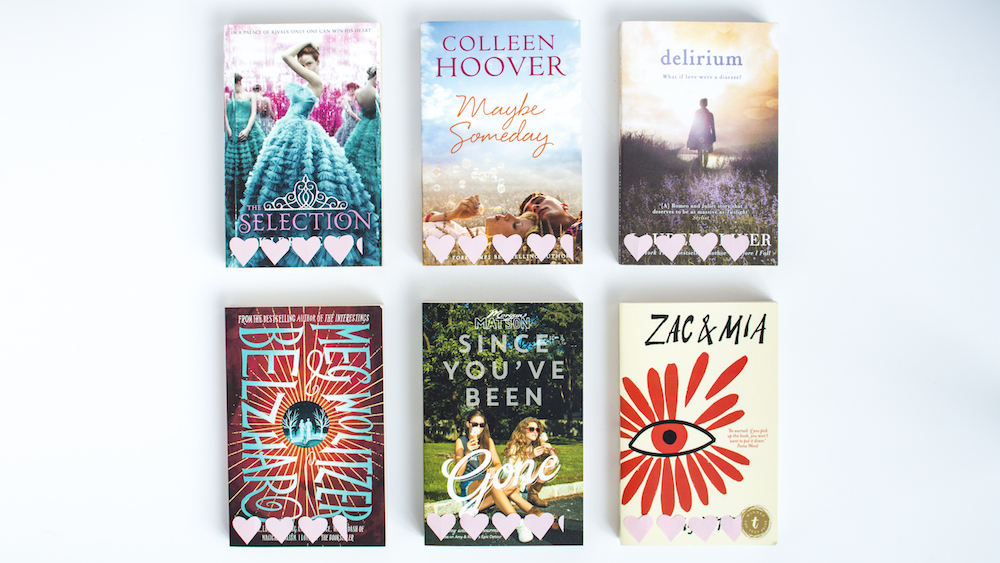
Average Goodreads ratings are based on relative views
Book reviews are relative. Book reviews are subjective. Objectivity doesn’t exist, especially not when it comes to qualitative analyses of books rather than quantitative ones. This means that the relativity of book reviews is pretty much inevitable.
Individual Subjectivity
Individuals have the capacity to form their own thoughts, which allows them to take on perspectives unique to them. We have as many selves as we have relationships. Each time we interact with someone, we present a variable self.
Reading, I believe, is yet another relationship. While the words on a printed page don’t change, the interaction each reader has with a book is different. Consequently, interpretations will also vary.
Relation to Other Books
Sometimes our views are also shaped by the other books we’ve read. Take Layla (hypothetical person) who has read 10 books. She disliked them all. Then she reads Book Eleven (hypothetical titles). She feels that it was so much better than the other ten books and so she loves and praiseS Book Eleven to the heavens.
Then there’s Tina (also hypothetical). She has read 100 books. She had a good mix of books she liked, disliked and those she thought were average. She too reads Book Eleven. Compared to the other 100 books she read, it is terribly cliché. As a result, she hates it.
Layla’s and Tina’s responses demonstrate the relativity of views based on their comparisons to the other books that they have read.
No two persons ever read the same book.
—Edmund Wilson (via Goodreads)
We often compare the books we’ve read with one another. The more we read, the more books we can compare. Someone who reads a hundred books a year is much more likely to pick up on clichés than someone who only reads five books a year. Someone who exclusively reads fantasy will be pleasantly surprised by tropes a historical fiction reader might deem to be the norm.
Quantitative Relativity
Even when it comes to rating books on a scale of 1 to 5, such as on Goodreads, these ratings are relative. For one, these numbers are based on opinions and qualitative analyses. Hated a book? Rate it a 1 or even a 0. Loved a book to the moon and back? Rate it 5. That sounds like the numbers at least do have some meaning. Now what about the middle ground?
The trouble with the 5-star system is that not everyone seems to agree what the average rating constitutes. Some set it at 3 because technically it’s the middle star. Others follow the Goodreads system, where 2 stars supposedly mean “it was ok”. Confusingly, “it was ok” on Amazon is for 3 stars.
Then there is me. I set my average at 2.5 because half of 5 is 2.5 and I use half-stars to rate books. This means for me 3 stars is a good book for which I can see its merit, even if I didn’t like some parts. 4 means it was a very good book and 5 means it was exceptional.
Objectivity Across the Platforms
The difficulty for book reviewers lies in setting a numeric rating that can be standardised across the platforms. Clearly a 3 on Goodreads doesn’t mean a 3 on Amazon. A 3 on Amazon is technically a 2 on Goodreads. In order to achieve any semblance of objectivity, book reviewers would have to calibrate their ratings across the board. Since a star-rating often is set accord to gut instinct, there’s no conversion formula though.
Even though I average out my ratings according to different aspects such as plot, originality and characterisation, I still end up with one rating that I use on different sites. I don’t sit down and calculate a rating for my blog, a rating for Goodreads, a rating for BookLikes, and so on. In fact, fixing different ratings would only confuse me.
Ratings on Blogs Explained
Take a look around on book blogs. A lot of bloggers explain their rating system. They either have a quick reference in their sidebar or they set up a page just for the explanation. I too have a page explaining my rating system.
I think the reason so many bloggers do that is because there is the tacit understanding that even numbers can mean different things to different people. Adding a legend in the sidebar or writing up a page explaining one’s ratings can help to avoid misunderstandings.
Futility of Objectivity
Objectivity indicates that there is absolute truth. Such truth must be conceivable independent of particular individual perceptions. In the case of book reviews and ratings, I don’t believe that there is an absolute true assessment to be obtained. If there were, then most everyone’s views would be superfluous banter. Superfluous they most certainly are not. They all contribute to a melting pot of subjective books reviews.
The reason new book blogs can spring up everyday with new book reviewers to join the party is that these people have something different to say. Everyone’s views are influenced by a myriad of factors, and each view on a book has its validity, regardless of its stance.
A positive book review is not any more true than a negative one. A negative book review is not superior because it could deconstruct a book. The focus of each book review varies and sheds light on different aspects, depending on what is important to that particular reader.
Do you think book reviews and ratings should aim for objectivity? Or do you laud subjectivity?
Confab ˈkän-ˌfab, kən-ˈ noun an informal discussion, often about a particular topic
Discussion posts are some of my favourite posts to read. New ideas get shared that way, or old ideas are revisited and given a new spin. And of course, I get to be my opinionated self as I hoist my views upon others, while pretending to be objective. Or maybe not. I do welcome alternate views and I’d love to hear from you in the comments!

This post completely puts into words how I feel about rating systems. Sometimes I think I’m just throwing arbitrary numbers around when I’m rating books. Like if I give one book a 3.5 and another book just a 3, it means that I liked the 3.5 book better, but what does that actually mean in regards to the book? Does it mean that I want to own a copy of the book? Would I re-read it? Would I suggest it to a friend? Sometimes I think practical ratings like this make more sense. Great post!
This post reminded me of the few times I fell in love with new genres, like sci-fi and contemporary romance. The first few books in those genres always felt as original to me, because I simply hadn’t read any or a lot of books in those genres.
Ratings are always a difficult issue and I always believed my actual review was more important. Just like I always choose on ratign and stay with it, I don’t compute a new rating for different sites.
Great and interesting post!
I’m here. I made it. While I was intrigued by the sound of this post last night, I just want to say that I ADORE IT TO PIECES NOW THAT I’VE READ IT. Brilliant. You’ve put everything into words with such an accessible simplicity. A fantastic read, Joséphine!
Did you know, the scary thing is, I set my average-ish reads at 3…just because that’s the middle star. I never once thought to stop and think about the fact that 2.5 is actually half of 5 and not three. To think I took extension mathematics in HS. Jeez, it’s a miracle I didn’t fail. I should have been kicked out hahaha
I should consider cleaning up the wording to my rating system and plopping it up on my blog. I actually have an extremely detailed on that separates half stars and even smaller decimals. But I keep it personally for me, just so I don’t get too confused by it. Because I rate in half stars, most things are quite similar but one or two points can change a lot. I’m going to make my NYs resolution to fix it up and make it presentable (I’m just saying that because that’s a resolution that I can actually achieve for once hahaha).
Honestly, as much as I love a bit of objectivity, it seems to be impossible with books. I just think that the reading experience is one of the most subjective things out there. It’s different for everybody. As objective as I attempt to be with all my reviews, I also add personal touches to them and I note how I personally take things as well, just so that the reader understands that while this, this and this was blah blah blah, here’s how I personally took it and etc. And that seems to be working for me. I mean, I like the way I set it out like that. I like to think that I’m attempting objectivity, but also disclaiming the subjectivity, you know?
“Someone who reads a hundred books a year is much more likely to pick up on clichés than someone who only reads five books a year. Someone who exclusively reads fantasy will be pleasantly surprised by tropes a historical fiction reader might deem to be the norm.” <–This statement just said everything. I have a lot of friends who aren't big readers and when they read something on a blue moon and turn to me asking why I didn't like it, I always have to explain to them that I've read a hundred and one things that have executed the same idea in a more successful manner and it still baffles them.
WHAT THE HECK. The page refreshed and I scrolled down to check if my comment was successful and saw that long ass comment. For a moment I thought “wow, whilst I was writing, someone posted a couple of paragraphs!” And then I realised it was me and now this is awkward hahaha
Whooooaa. This post got into the technical nitty gritty. But you are right. Rating systems are completely subjective. I like when a blogger explains their rating process into something easy and quick to understand. I think it is imperative that bloggers continue to WRITE REVIEWS AND READ THEM!! I can rate Book Eleven with 3 stars and my friend could rate it with 3 stars, but that would mean totally different things to us. The answers are in the reviews! Reviews should explain why we liked and didn’t like the book. They should easily convey to others who read them what we believed was the good and bad of the book. I may still go into Book Twelve and come out hating it, unlike my friend who raved about it. But I can say I read her review and went into it knowing what to expect. And then we can have a lively discussion about the story as well ;)